Causes of Extreme Fatigue
The Most Common Reasons for Excessive Fatigue
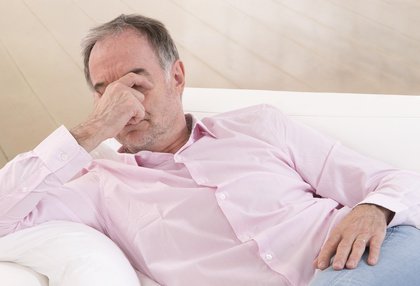
Discovering the causes of extreme fatigue can be difficult if you don't know the distinctions between fatigue and sleepiness.
Some disorders cause fatigue, others sleepiness, and some disorders cause a mix of these two.
The question is: "Are you tired, sleepy, or fatigue?"
In this page you will learn:
- What is extreme fatigue, compared to sleepiness and tiredness,
- What causes extreme fatigue, including most common disorders and medication,
- Useful questionnaire to test your excessive fatigue,
- How to stop fatigue in a sleep apnea patient.
What is Severe Fatigue?
Feelings of excessive fatigue, tiredness and sleepiness have different descriptions. Explaining correctly how do you feel to your doctor may be critical to find the real causes of extreme fatigue.
Let's learn how can we make the difference between extreme fatigue and daytime sleepiness:
Definition of Extreme Fatigue
According to Sleep Disorders and Sleep Promotion in Nursing Practice, fatigue means an overwhelming sense of tiredness, lack of energy, and a feeling of weakness linked with physical or psychological problems.
In simple words, fatigue is an unpleasant feeling that describes sensations of muscle weakness and low energy, but without having sleepiness.
Fatigue is something that you feel when:
- you finish the physical activity or exercise,
- you are depressed,
- you are bored, and have no inspiration for doing something.
People with fatigue usually want to rest, sitting down on a chair, or laying down on the bad, but without wanting to sleep.
Definition of Daytime Sleepiness
Sleepiness, is the tendency to fall asleep during the day. A person with excessive daytime sleepiness has the desire to fall asleep or has unintended episodes of falling asleep in during daytime.
Compared to fatigue, sleepiness is in general a pleasant feeling of drowsiness. It makes you lie down, close your eyes, and fall asleep. This sensation is occurs in general before falling asleep.
Comparison: Excessive Fatigue vs Excessive Sleepiness
Differences Between Fatigue and Sleepiness
|
Fatigue |
Sleepiness |
|
- is something that you feel in your body, |
- is something that comes from your mind, |
|
- your muscles might be sensitive or achy. The general sensation is unpleasant, |
- it's difficult to stay awake and to keep your eyes open. The eyelids become heavy. Normally, the sensation is pleasant. |
|
- you don't have the energy to work, or to do something, |
- your mind can't focus, and is seeking a way to fall asleep, |
|
- if you force yourself to continue the work while tired, you may feel frustration and even pain in your body. |
- Forcing yourself to stay awake can generate frustration, anxiety and even pain. |
Understanding the differences between sleepiness is important for finding an effective treatment, especially in insomnia.
For example, many patients with insomnia try to fall asleep when they feel tired but not sleepy. Moreover, they take sleeping pills to which do not cure their problem, but it may aggravate it.
Causes of Extreme Fatigue
Disorders That Causes Excessive Fatigue
1. Insomnia
Insomnia is one of the most common causes of extreme fatigue. It is a syndrome where the complaints are:
- difficulty falling asleep,
- trying to stay asleep, and waking up often,
- having unrefreshing sleep,
- irritability,
- frustration,
- daytime fatigue with lack of energy,
- memory problems,
- problems at work or in the family.
Due to lack of refreshing sleep, insomnia will also cause excessive daytime sleepiness, which can affect important activities such as driving or working.
For more info on insomnia, see Insomnia Disorder.
2. Jet Lag
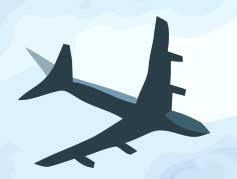
Jet Lag is another cause of extreme fatigue. It appears when you force your body to change his body clock faster than normal. This can happen in air travel across several times zones.
Symptoms of Jet Lag are:
- extreme fatigue during the day,
- disturbed sleep,
- insomnia - can't fall asleep,
- poor concentration.
3. Delayed Sleep Phase Syndrome
Delayed Sleep Phase Syndrome (DSPS) causes extreme fatigue mainly in the morning, because the person with DSPS has sleep onset and waking times delayed by couple of hours compared to normal people.
This person feels sleepy and goes to bed very late, at about 2 - 6 am, and wakes up at 10 am to 1 pm. This syndrome is most common in adolescents and young adults, but can occur in any age.
4. Chronic Obstructive Pulmonary Disease
Chronic Obstructive Pulmonary Disease (COPD) causes extreme fatigue and sleepiness during the day, by breathing less during sleep.
If your breathing less, the oxygen level drops and carbon dioxide levels build up, causing morning headaches, nausea, fatigue and sleepiness in daytime.
5. Type 2 Respiratory Failure
Type 2 Respiratory Failure is responsible for causing extreme fatigue, shortness of breath, loss of energy, sleepiness, insomnia, nightmares, and headaches in the morning.
Type 2 Respiratory Failure is a condition where your oxygen levels are low and carbon dioxide levels are high. In healthy people, the O2 levels are high and CO2 levels are low.
6. Hormonal Imbalance
Hormonal Imbalance is one of the common causes of extreme fatigue:
| Hormonal Imbalances that causes Fatigue |
diabetes mellitus - which is also found in many patients with obstructive sleep apnea. |
thyroid disease - hypothyroidism is associated with fatigue. |
menopause - daytime fatigue and sleep disturbances are the most common symptoms during menopause. |
postmenopausal women - are at increased risk for snoring and obstructive sleep apnea, which can lead to excessive daytime sleepiness and extreme fatigue. |
pregnancy - many women experience fatigue and daytime sleepiness during first trimester and third trimester from conception, due to the difficulty of falling asleep. In the second trimester of pregnancy, many women experience a great improvement in their sleep quality and daytime energy levels. |
after pregnancy - many women feel more fatigue due to low level of iron. Eating well and taking a nap during the day when the baby is napping help to recover the energy levels. |
7. Heart failure
Hear failure often causes feelings of daytime fatigue and sleepiness. During sleep, patients with heart failure can experience shortness of breath or longer pauses in breathing because of poor circulation to the brain.
Sleep Apnea is common in patients with heart failure and also affects the quality of sleep.
For more info on diabetes in patients with sleep apnea, see Sleep Apnea and Diabetes.
8. Cancer
Cancer has many factors that causes excessive fatigue, such as:
- weight loss,
- breakdown of the tissues with release of energy,
- hormonal imbalances,
- depression and anxiety, which by themselves can cause fatigue,
- sleep disruption can also lead to sleepiness and fatigue,
- cancer treatments, such as radiation and chemotherapy can also cause extreme fatigue.
9. Depression
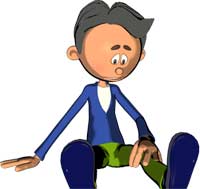
Depression can cause insomnia, restless sleep and fatigue. In addition, OSA and depression are common causes of extreme fatigue in patients with severe sleep apnea.
These 2 disorders share common symptoms such as: fatigue, sleepiness, restless sleep and awakenings, irritability and low sexual drive.
If you snore during sleep and you are depressed and excessive fatigue during the day, you should suspect obstructive sleep apnea. Treating OSA will help tremendously in alleviating depression.
For more info on depression in sleep apnea patients, see Sleep Apnea and Depression.
11. Seasonal Affective Disorder
Seasonal Affective Disorder (SAD) is present during winter, when it's getting dark sooner than in the summer.
The are a multitude of SAD symptoms, such as:
- sleep problems,
- depression, anxiety, irritability, unable to cope with work duties,
- excessive fatigue and low energy levels, lethargy feelings,
- hormonal problems, including irregular menstrual periods,
- reduced libido,
- concentration and memory problems,
- increased sensibility to viral infections.
These symptoms occurs only in winter, and excessive fatigue and sleeping problems last a shorter time than depression which last until February.
12. Stroke
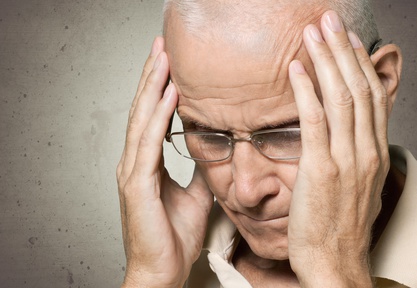
Stroke leads to sleep problems and fatigue symptoms during the day. Fatigue is found in 3 to 4 in 10 patients with stroke, but excessive daytime sleepiness is also common in about 2 to 4 patients.
Furthermore, people who have a stroke may develop shortness of breath during sleep, or pauses in breathing, which can lead to extreme fatigue and sleepiness during the day.
However, sleep disordered breathing, such as sleep apnea, can also cause stroke.
13. Parkinson
Parkinson causes sleep disturbances, which can lead to fatigue and sleepiness during the day. Many medications used to treat Parkinson can worsen these sleep disturbances.
If the patient snores or have sleep apnea, this can increase the levels of fatigue.
14. Brain surgery
Brain surgery can lead to fatigue if the brain tissue was damaged. However, fatigue is also common in any other major surgery, and it may take months to recover your energy levels.
Some medications used after surgery can also increase the fatigue and sleepiness levels.
15. Post Polio Syndrome
Post Polio Syndrome causes extreme fatigue by increasing the weakness of the muscles that control breathing. This can affect the normal breathing during sleep, lowering the level of O2 and increasing CO2 levels.
Feelings of morning headaches, daytime fatigue and low appetite are common in patients with post-polio syndrome. Furthermore, sleeping problems can increase the weakness of the muscles.
16. Sleep disorders
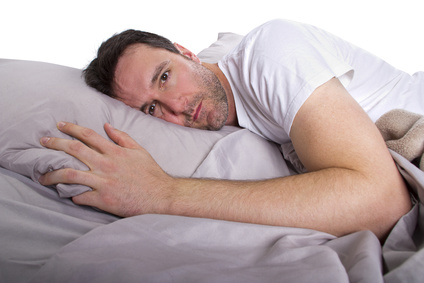
Sleep disorders are not only common causes of extreme fatigue, but also for excessive daytime sleepiness.
Patients with sleep disorders, such as sleep apnea, restless legs syndrome, periodic leg movement disorder or narcolepsy may describe extreme fatigue as:
- feeling tired
- fatigued
- low energy
- sleepiness
- lazy
- drowsy
- sleepy
- excessive somnolence
A patient with extreme fatigue associated with a sleep disorder often takes naps, but are usually non-refreshing. In fact, no amount of sleep relieves these symptoms of extreme fatigue.
Mild sleep apnea can also cause fatigue and sleepiness. Patients with mild OSA can be helped with alternative treatments, such as positional therapy. However, the most effective treatments are weight loss (in overweight patients) and CPAP.
To learn how to treat sleep apnea, see Sleep Apnea Treatment.
Other Causes of Extreme Fatigue - Medications
Medications for depression like antidepressants, can cause sleepiness and fatigue. In one recent study, more than 90 percent of patients with major depression had severe fatigue despite the fact that more than 80 percent of these patients were already taking antidepressant medications. Read the study here.
Drugs that reduce the high blood pressure (antihypertensives), especially alpha 2 receptor agonists, beta-blockers and alpha 1 receptor antagonists are also common causes of extreme fatigue.
Drugs that treat abnormal heart rhythm (antiarrhythmic medications) also may cause sedation.
Questionnaire for Diagnosing Fatigue Severity
The Fatigue Severity Scale
This self-rated test can help you assess the severity of your fatigue symptoms in different aspects of your life. You have to rate each item from 1 (strongly disagree) to 7 (strongly agree). The higher the score, the greater the fatigue.
It was established that a score of 3 is the limit between normal and abnormal fatigue levels.
| The Fatigue Severity Scale |
Motivation is lower when I'm feeling fatigued. |
Exercises produces my fatigue. |
I am easily fatigued. |
Fatigue interferes with my physical abilities. |
Fatigue causes frequent problems for me. |
My fatigue prevents sustained physical functioning. |
Fatigue interferes with carrying out certain duties and responsibilities. |
Being fatigued is among my three most disabling symptoms. |
My fatigue interferes with my work, family, or social life. |
Epworth Sleepiness Scale (ESS)
ESS is used to diagnose the severity of daytime sleepiness, or the tendency to fall asleep during the day. If you have a score of 10 or above, then you have an abnormal level of daytime sleepiness.
Furthermore, if the test shows 10 or more, you should avoid driving. Daytime sleepiness peaks during the mid-afternoon hours, and traffic accidents are usually common during these times.
For more info on sleepiness questionnaire, see Epworth sleepiness scale.
Summary on Causes of Extreme Fatigue:
Sleepiness is a normal sensation when you have the tendency to fall asleep. However, people with excessive sleepiness have the tendency to fall asleep at inappropriate times and circumstances (at work, while driving, etc). Sleepiness is mainly caused by the lack of sleep, or poor quality of sleep.
Fatigue is different from sleepiness, and is associated with feelings of tiredness, exhaustion, weariness, and lack of energy. Some people with extreme fatigue think they are sleepy, although they don't have the need to sleep.
Causes of extreme fatigue include a wide variety of medical, psychiatric and neurological disorders, including multiple sclerosis and autoimmune disorders.
That's why is important to visit your doctor if you feel extreme fatigue every day for more than 3 weeks.
There are important tests to reveal the underlying causes of extreme fatigue, including nocturnal polysomnography followed by a Multiple Sleep Latency Test (MSLT).
These test are very important to identify exactly what are your causes of extreme fatigue and how severe they are. After you have all the information from these tests, your doctor will know what is the most effective treatment.
Sleep Apnea › What is Sleep Apnea › Causes of Extreme Fatigue







